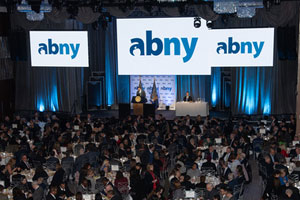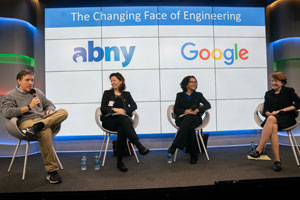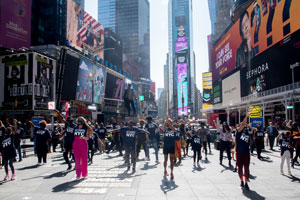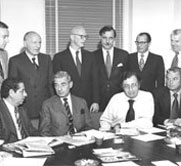In the 1970s New York City faced what would later be recognized as one of the worst fiscal crises in its more than 400-year history. Lew Rudin, a charismatic real estate developer passionate about the city and its people, felt compelled to take action.
On a cold winter day in early 1971, Rudin sat down at the Regency Hotel on Park Avenue, along with many other passionate New Yorkers, for what is now famously known as “the original power breakfast.” At his side was the dynamic and civic-minded hotelier Robert Tisch. The two were anguished over the dire straits the city had succumbed to, so they hatched a plan. They galvanized a group of more than 125 executives from a broad range of sectors to find the answers that would help get their city back on its feet as well as discover ways in which they could combine efforts and resources to create a brighter future for the City of New York.
Within weeks, the Association for a Better New York (ABNY) was born, taking on the unprecedented role of tackling solutions to the city’s social issues–work that had previously been deemed the domain of city agencies.
One of ABNY’s first initiatives was “Operation Clean Sweep”, which encouraged thousands of building owners on the West Side of Manhattan to have their own janitorial staffs sweep the pavement and gutters in front of their properties every day. It was a simple request that led to spectacular results. Throughout the 1980s and 1990s, ABNY became active in improving virtually every area of municipal life from transportation to education. ABNY spearheaded the legendary I LOVE NY campaign for New York City and New York State. Rudin personally handed out thousands of golden apple lapel pins. In the process, he affectionately became known as “Mr. New York.” Lew Rudin was a tireless advocate for New York City and its people until his death in 2001.
Rudin’s legacy of service, personal responsibility, and communal accountability live on in our work today.






